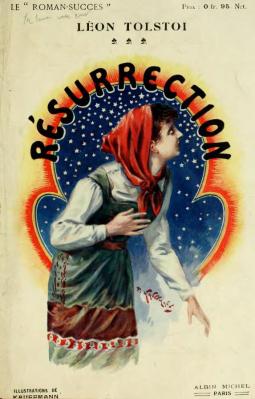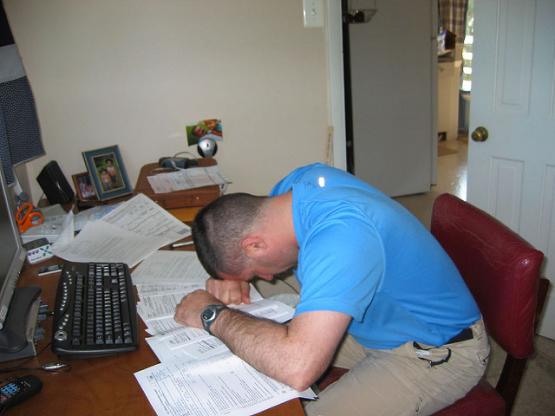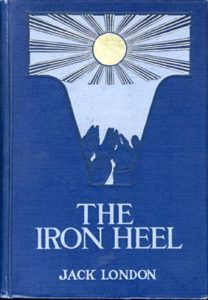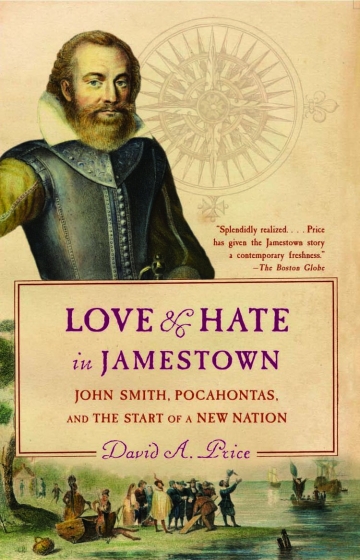[Please note: There is no need to stay the full 3½ hours of this event. Come when you’d like and leave when you wish. ]
How much stuff do you think you “own,” but really only have a limited license to use in specific ways? You may be surprised to learn who is restricting your freedom to innovate and share information. As software-driven products become more common, how can you be sure that your possessions aren’t working against you? Is that the price we have to pay to live in an advanced economy? It need not be.
Find out how software freedom fits into the “liberty means justice” political economy that we teach, why and how we use open source software wherever possible (and it almost always is). Discussion and videos presented in cooperation with the Free Software Foundation.
Meanwhile, to learn more about DRM and why it might be a bad thing, visit Defective by Design.
 Resurrection (1899)
Resurrection (1899)
By Leo Tolstoy
This late 19th-century novel about nobleman Dmitri Ivanovich Nekhlyudov’s efforts at redemption after a life of sin is Tolstoy’s last major novel before his death in 1910. The readers will have a complex relationship with the tormented protagonist and his desperate attempts at redemption and forgiveness, since Nekhlyudov’s misguided decisions and youthful errors are often not so dissimilar from our own. Resurrection is a scathing exposition of the myriad prejudices of the man-made justice system and the hypocrisy of the establishment, while it also explores the economic philosophy of Georgism – of which Tolstoy had become a strong advocate toward the end of his life. [from the Culture Trip]
Political Economy Book Club discussions are open to everyone interested, without charge, and the text (in English translation) is available free from various sources including archive.org, who also offer a free audiobook. There is also a more recent translation by Anthony Briggs, which can be purchased or licensed in various formats and is available in some public libraries. Any questions about the PEBC may be directed to Convenor Bob Matter,

Do we need to suffer like this (and/or pay someone else) in order to fund government? In this presentation, HGS instructor Bob Jene looks at what it costs to collect income taxes. The direct cost to the government of operating the Internal Revenue Service is only a small part, as the burden put on the taxpayer, and the diversion of effort from productive uses, should also be considered.
Between 1948 and 1973, Americans’ real wages rose almost as fast as their productivity. After 1973, productivity grew 147% but wages rose only 19%. This raises two questions:
(1) If workers getting less, who is getting more?
(2) Is there a way to restore the balance?
To solve the problem of poverty, and the many other problems that follow from it, ordinary workers need higher wages. George Menninger describes how to raise wages without interfering in the free market and without taking anyone’s earnings.
George Menninger is an instructor at the Henry George School of Chicago, and attendees at this free program will have the opportunity to sign up for his Progress & Poverty course.
You can sign up for this free event thru Eventbrite, or RSVP directly by email.
Between 1948 and 1973, Americans’ real wages rose almost as fast as their productivity. After 1973, productivity grew 147% but wages rose only 19%. This raises two questions:
(1) If workers getting less, who is getting more?
(2) Is there a way to restore the balance?
To solve the problem of poverty, and the many other problems that follow from it, ordinary workers need higher wages. George Menninger describes how to raise wages without interfering in the free market and without taking anyone’s earnings.
George Menninger is an instructor at the Henry George School of Chicago, and attendees at this free program will have the opportunity to sign up for his Progress & Poverty course.
No reservation is required, but you can let us know by email that you’re coming.
Between 1948 and 1973, Americans’ real wages rose almost as fast as their productivity. After 1973, productivity grew 147% but wages rose only 19%. This raises two questions:
(1) If workers getting less, who is getting more?
(2) Is there a way to restore the balance?
To solve the problem of poverty, and the many other problems that follow from it, ordinary workers need higher wages. George Menninger describes how to raise wages without interfering in the free market and without taking anyone’s earnings.
George Menninger is an instructor at the Henry George School of Chicago, and attendees at this free program will have the opportunity to sign up for his Progress & Poverty course.
No reservation is required, but you can let us know by email that you’re coming.

Join us in celebrating Income Tax Appreciation Day. This page will be updated with specifics of our celebration as we figure out how best to do it.
 Bob Matter’s Political Economy Book Club is reading Jack London’s dystopian novel The Iron Heel. On June 25 we’ll discuss chapters 1-13, and on July 23 chapters 14-25. This 1908 text is available free from Project Gutenberg, in hardcopy from some public libraries, or as an audiobook. You can buy used hardcopies for < $10 from several vendors.
Bob Matter’s Political Economy Book Club is reading Jack London’s dystopian novel The Iron Heel. On June 25 we’ll discuss chapters 1-13, and on July 23 chapters 14-25. This 1908 text is available free from Project Gutenberg, in hardcopy from some public libraries, or as an audiobook. You can buy used hardcopies for < $10 from several vendors.
We’ll meet at the East Loop location of Bridgeport Coffeehouse, 73 E Jackson Blvd.
 Bob Matter’s Political Economy Book Club concludes its discussion of Jack London’s dystopian novel The Iron Heel. On July 23 we treat chapters 14-25.
Bob Matter’s Political Economy Book Club concludes its discussion of Jack London’s dystopian novel The Iron Heel. On July 23 we treat chapters 14-25.
We’ll meet at the east loop location of Bridgeport Coffee, 73 E Jackson.
 “In 1606, approximately 105 British colonists sailed to America, seeking gold and a trade route to the Pacific. Instead, they found disease, hunger, and hostile natives. Ill prepared for such hardship, the men responded with incompetence and infighting. Only the leadership of Captain John Smith averted doom….” (from the book jacket).
“In 1606, approximately 105 British colonists sailed to America, seeking gold and a trade route to the Pacific. Instead, they found disease, hunger, and hostile natives. Ill prepared for such hardship, the men responded with incompetence and infighting. Only the leadership of Captain John Smith averted doom….” (from the book jacket).
